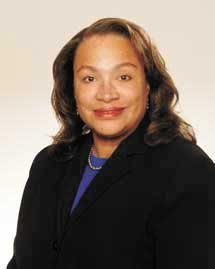BALTIMORE — For 18 years Dr. Claudia Baquet has been able to secure important grant funding for the Maryland Area Health Education Center (MAHEC) program and its centers (AHECs), which exist to improve the health status of Marylanders through community-academic partnerships that foster a commitment to enhancing health care access in rural and other underserved areas of the state.
Dr. Baquet recently secured $305,000 in grant funding for the year from the Health Resources and Service Administration (HRSA) to aide three community-based AHECs- one in Western Maryland serving four counties; the Eastern Shore, which serves nine rural counties; and Baltimore, which serves the city and county.
“My mission, our mission, is to reduce and eventually eliminate health disparities and to increase access to quality healthcare for the underserved,” said Dr. Baquet, the Program’s director who also is director of the Center for Health Policy/Health Services Research and the Center for Health Disparities at the University of Maryland Medical School.
Historically, it is much easier to qualify for grants than it is to receive the actual funding, but Dr. Baquet has succeeded for nearly two decades in securing the necessary cash awards to help further the program and center’s cause.
“Because of HRSA funding, we’ve been able to secure other grants as well, which really helps to support the mission,” Dr. Baquet said.
An associate dean for policy and planning at the University of Maryland School of Medicine, Dr. Baquet serves as an advocate for better health care, including issues relating to the health needs and models for underserved communities, telemedicine and rural health initiatives.
The MAHEC program exists to address the distribution, diversity, and quality of health care professionals serving Maryland’s rural and urban areas.
The program, along with its centers, work in tandem to achieve its purpose through common objectives that address the needs of underserved communities, and an evaluation plan that assesses program progress and indicates need for adjustment.
The first center in Western Maryland was established in 1976 and followed by the Eastern Shore Area center in 1995 and the Baltimore center in 2002. State health department support for the program has been provided since the beginning of the Eastern Shore Center. The program serves over 70 percent of these counties and Baltimore City.
“The scope of current activities includes maintaining the level of effort currently underway to meet health care workforce needs and health care needs of those most underserved,” Dr. Baquet said. “This is achieved through a well designed methodology to serve underserved and disadvantaged populations through a range of programs.”
Specific activities include, expanding the interdisciplinary education experiences of health profession students through clinical rotations for fourth year medical students and an introduction of AHEC to first and third year medical students.
Goals also include increasing the number of health profession students trained through the clinical education programs offered by the MAHEC program and its centers and increasing the number of continuing education participants in the Maryland AHEC Program while also developing interdisciplinary continuing education programs specific to the needs of the local community.
The federal funding has been used to leverage additional funding to support health disparities initiatives and research. For example, leveraged funding using the federal grant was instrumental in sporting $2.6M and $1.3M in funding for the Eastern Shore and Western Maryland AHECs respectively.
